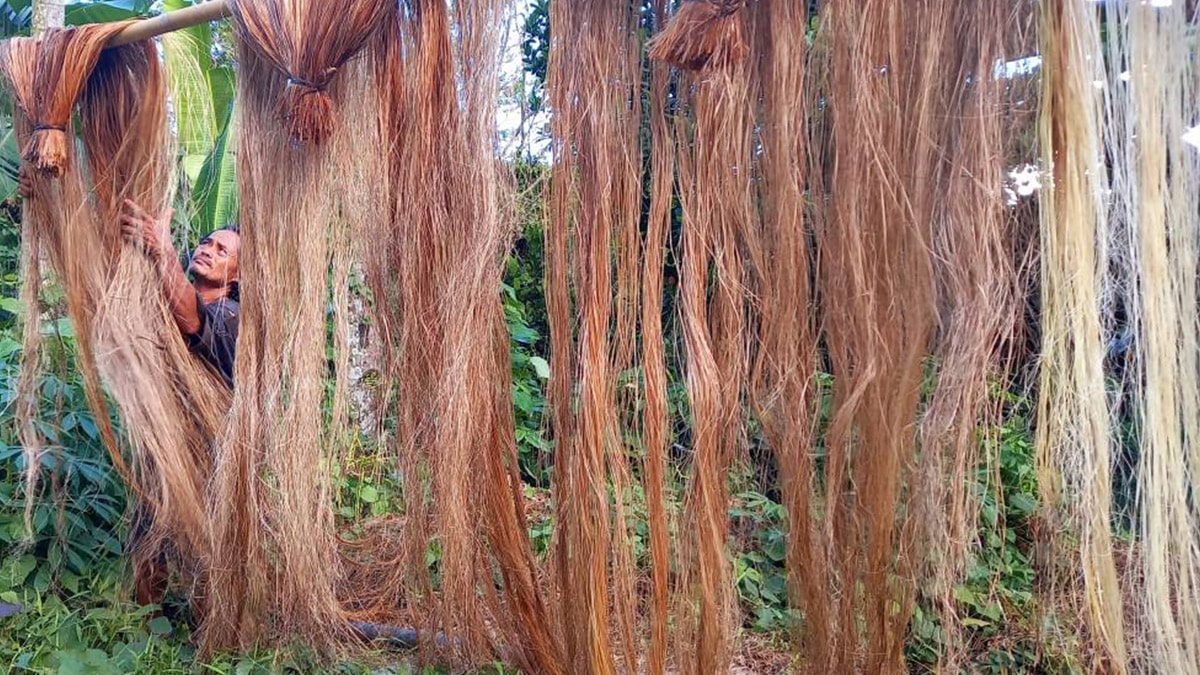
AIR-DRY Strips of abaca fiber are air-dried by a farmer in Baras, Catanduanes, in this photo taken on Oct. 24, 2022, before these are sold. —Michael B. Jaucian
MANILA, Philippines — A farmers’ group on Sunday urged the government to provide relief for abaca farmers in Catanduanes, citing the “widespread devastation” of Super Typhoon Pepito (international name: Man-yi) in the province also known as the abaca capital of the Philippines.
“Catanduanes accounts for 80 percent of Bicol’s abaca production, with at least 21,500 hectares of land dedicated to the crop,” said Kilusang Magbubukid ng Pilipinas (KMP) in a statement.
As defined by the Department of Science and Technology website, abaca, otherwise known as Manila hemp, “with the scientific name Musa textilis, is a natural leaf fiber species of banana grown as a commercial crop native in the country.”
READ: Super Typhoon Pepito topples trees, power lines in Luzon
The affected farmers, however, are now asking for “immediate interventions, including disaster relief, compensation, and recovery funds,” after Pepito made landfall over the municipality of Panganiban on Saturday.
“They also call for inclusive rehabilitation programs and compensation for damaged crops to help rebuild their livelihoods,” the group said.
Catastrophic damage
According to KMP, Pepito has “displaced tens of thousands of families and caused massive destruction to abaca farms, homes and infrastructure.”
Based on its initial assessment, the group said Panganiban as well as the towns of Pandan, San Andres, Viga and Gigmoto suffered from “severe damage” due to the storm.
“The island province (Catanduanes), battered by winds of up to 325 kilometers per hour, suffered catastrophic damage to livelihoods, particularly for abaca farmers who have yet to recover from previous disasters,” the group added.
KMP pointed out that Severe Tropical Storm Kristine (international name: Trami), which made landfall over Divilacan, Isabela, on Oct. 23, had already caused P800 million worth of damage to the abaca sector, affecting around 13,000 farmers and their families.
According to Sagip Kanayunan, a relief network composed of farmers and fishers’ groups, typhoons “severely impact” the livelihood of abaca farmers, since abaca plants take one to three years in order “to fully mature and be ready for harvesting, leaving farmers in prolonged financial distress after every storm.”
The network noted in a statement on Sunday that besides the recent weather disturbances, the abaca sector in Catanduanes also suffered from past tropical cyclones such as Super Typhoon Rolly (international name: Goni) in 2020, which destroyed 80 percent of abaca crops.